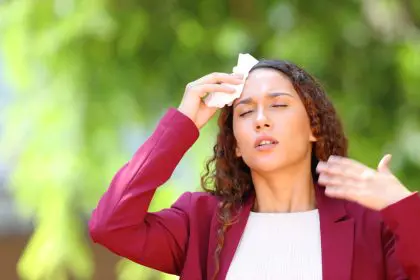A sinister threat looms large in a world where aging gracefully is the ultimate goal for our elderly loved ones. A groundbreaking study has uncovered a chilling connection between falls and the risk of dementia in older adults, sending shockwaves through the medical community and families alike.
The research, published in JAMA Network Open, drops a bombshell: older individuals who take a tumble and suffer traumatic injuries are a staggering 21% more likely to be diagnosed with Alzheimer’s disease or other forms of dementia down the road. It’s a wake-up call that’s impossible to ignore, especially as the number of seniors taking spills continues to climb year after year.
Understanding the study
Picture this: over 2 million older adults, their average age a wise 78 years, all having experienced the jarring impact of a fall. Among these individuals, more than one in ten received a dementia diagnosis within a year of their tumble. It’s a statistic that hits hard, particularly for women, who found themselves more frequently on the receiving end of gravity’s cruel joke.
Why falls increase dementia risk
The plot thickens as we delve into the reasons behind this unsettling connection. While the direct link between falls and dementia remains as elusive as a cat in a room full of rocking chairs, experts have their theories. Dr. Alexander Ordoobadi, the study’s lead author, suggests that injuries sustained during falls might be the match that ignites the powder keg of existing cognitive decline.
Think of it as a twisted game of dominoes. Alzheimer’s, that notorious brain-cell assassin, might find its deadly work accelerated by traumatic brain injuries. It’s a scenario eerily reminiscent of the repetitive head injuries seen in contact sports, which have long been linked to an increased risk of dementia.
Symptoms and early detection
As dementia creeps in, it doesn’t just rob memories – it steals the very ability to stay upright. Dr. Molly Jarman, a senior author of the study, paints a grim picture of a “two-way street” where cognitive impairment increases the likelihood of falls, which in turn may lead to further cognitive decline. It’s a vicious cycle that’s hard to break.
The warning signs are there if we know where to look:
– Difficulty maintaining balance, as if walking on a tightrope
– Frequent tripping or spilling, turning everyday tasks into obstacle courses
– Challenges with dressing and orientation, as if the world has suddenly turned upside down
Expert opinions on the findings
While the study’s results are a clarion call for cognitive screening of older adults hospitalized due to falls, Dr. Ordoobadi cautions against jumping to conclusions. Some patients may have been harboring undiagnosed cognitive issues long before their fall, only to have them unmasked by the increased medical scrutiny following their tumble.
Neurologist Dr. Clifford Segil, not involved in the study, adds another layer to the mystery. He points out that a host of age-related villains – heart disease, diabetes, and more – can contribute to both falls and cognitive decline. It’s a complex web of cause and effect that demands our attention.
Preventative measures and recommendations
What’s an aging rock star to do in the face of such daunting odds? The experts have a few tricks up their sleeves:
– Regular cognitive screenings, especially after a fall, to catch any mental missteps early
– Balance and strength training exercises, turning seniors into gravity-defying acrobats
– Fall-proofing living spaces, transforming homes into senior-friendly fortresses
– Staying informed about medical conditions that might increase fall risk because knowledge is power
As our population ages like fine wine, the findings from this study underscore the critical importance of understanding the relationship between falls and dementia risk. It’s a call to arms for fall prevention and cognitive health screening, a battle cry to protect our aging loved ones from the twin threats of gravity and cognitive decline.














